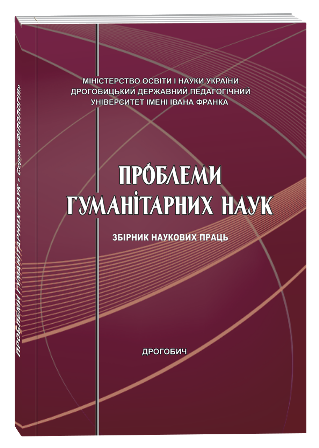ANCIENT MYTHS AS A PROLOGUE TO MODERN FEARS OF ARTIFICIAL INTELLIGENCE
DOI:
https://doi.org/10.24919/2522-4565.2024.60.9Keywords:
artificial intelligence, ancient mythology, Talos, self-moving statues, Daedalus.Abstract
Summary. The article focuses on the ethical issues of interaction between humans and artificial intelligence in the post-information society, and examines the ancient myth as a prologue to modern fears of new technologies. Artificial intelligence (AI) is a tool that radically changes society and poses new challenges to humanity related to ethics, security and responsibility. The purpose of this article is to provide a basis for understanding some characteristics of artificial intelligence through the similarity of AI to the history of mythological figures, to reveal the dangers and ethical challenges of AI at the present stage of human development by understanding these parallels with ancient wisdom. In literature, the topic of AI has a special place, as the evolution of the AI concept in literature reflects cultural, scientific and ethical issues, providing a wide range of material for reflections on human nature, technology and the future. The ancient concept of AI is based on myths that are associated with attempts to understand the nature of the mind and express human functions through mechanisms. Ancient myths warn that technology should always be a tool, not a goal, that people should be aware of the consequences of his creation and strike a balance between progress and responsibility. Ancient peoples, reflecting their fears and hopes through myths, sought to define the boundary between the living and the inanimate, the natural and the artificial. Today, modern AI, particularly in forms resembling humans, once again raises these enduring questions. Can artificial intelligence possess moral responsibility? Should we create systems that surpass human capabilities?» The myths of Thalos and “Daedalus’s self-moving statues” human statues of Daedalus remind us that technologies designed to protect and benefit us can become a source of danger if they get out of control. Therefore, modern AI developers should heed the advice implicit in ancient mythology. The study of this problem has significant theoretical and practical potential, as it combines mythology, philosophy, ethics, psychology and technology. Further study of this range of issues will not only allow us to better understand the fears and aspirations of modern society, but will also contribute to the formation of an ethical framework for working with innovations that change the world. In the future, it is also possible to develop recommendations for educational and technological programmes that would include mythological stories as a tool for analysing ethical challenges and promoting a responsible approach to the development and use of AI.
References
Азімов А. Я робот : Науково-фантастичне оповідання. Переклад з англійської Д. К. Грицюка. Київ : Веселка. 1987. 271 с.
Арістотель. Метафізика. Переклад : Олександр Юдін. Фоліо. 2024. 300 с.
Безверхий О. І., Луц В. Є. Перетворення мовлення на текст і зображення жестової мови за допомогою нейронних мереж, реалізованих в PYTHON. Системи та засоби штучного інтелекту : тези доповідей Міжнародної наукової конференції «Штучний інтелект : досягнення, виклики та ризик», 15–16.03. 2024. Київ : ІПШІ «Наука і освіта», 2024. С. 9–13.
Ґібсон В. Нейромант. Переклад з англійської Ольги Любарської. Видавництво. 2017. 311 с.
Грицюк М. П. Чи забере штучний інтелект вашу професію? Штучний інтелект у вищій освіті : ризики та перспективи інтеграції : матеріали всеукраїнського науково-педагогічного підвищення кваліфікації, 1 липня – 11 серпня 2024 року. Львів–Торунь : Liha-Pres, 2024. С. 62–66.
Гулієва Д. О. Творчі здібності людини в епоху штучного інтелекту. Штучний інтелект у вищій освіті : ризики та перспективи інтеграції : матеріали всеукраїнського науково-педагогічного підвищення кваліфікації, 1 липня – 11 серпня 2024 року. Львів–Торунь : Liha-Pres, 2024. С. 66–70.
Дасік О. В., Салімон О. М. Застосування штучного інтелекту в івент-менеджменті. Системи та засоби штучного інтелекту : тези доповідей Міжнародної наукової конференції «Штучний інтелект : досягнення, виклики та ризик», 15–16.03. 2024. Київ : ІПШІ «Наука і освіта», 2024. С. 65–71.
Дік Ф. К. Чи мріють андроїди про електричних овець? Переклад з англійської : Тарас Бойко. Київ : Комубук. 2016. 272 с.
Кларк А. 2001. Космічна Одіссея. Переклад з англ. В. Зенгви. Харків : Книжковий Клуб «Клуб Сімейного Дозвілля», 2017. 224 с.
Шеллі М. Франкенштейн, або Сучасний Прометей. Переклад з англійської : Оксана Зубченко. Львів : Мендор І. І., 2018. 326 с.
Apollodorus or Peudo-Apollodorus. URL : https://www.theoi.com/Text/Apollodorus1.html (дата звертання 22.12.2024)
Bathurst B. Rise of The Machines: Could artificial intelligence kill us off? URL : https://www.irishexaminer.com/lifestyle/arid-20343187.html (дата звертання 22.12.2024)
Chiang Т. Stories of Your Life and Others. Pan Macmillan. 2024. 352 p.
David М. and Sauviat C. Intelligence artificielle. La nouvelle barbarie. Editions du Rocher. 2019. 320 p.
Hearn L. Grass for His Pillow. Penguin Publishing Group. 2004. 368p.
Inside AI : An Algorithmic Adventure. Unesco graphic novel, conception and script by Dr. Katherine Evans, illustration by Isobel Joy Te Aho-White. Paris: UNESCO, 2022 URL : https://www.unesco.org/en/articles/inside-ai-algorithmic-adventure (дата звертання 22.12.2024).
Koening G. La fin de l’individu: Voyage d’un philosophe au pays de l’intelligence artificielle. L’observatoire. Le Point, «De facto». 2019. 400 р.
Mayor A. Gods and Robots : Myths, Machines, and Ancient Dreams of Technology. Princeton University Press. 2018. 304 p.
Pausanias. Description of Greece URL : https://www.perseus.tufts.edu/hopper/text?doc=Perseus:text:1999.01.0160 (дата звертання 22.12.2024).
Plato. Laws. URL : https://www.perseus.tufts.edu/hopper/text?doc=Perseus%3Atext%3A1999.01.0166%3Abook%3D4 (дата звертання 22.12.2024).
Plato. Menon URL : https://www.perseus.tufts.edu/hopper/text?doc=urn:cts:greekLit:tlg0059.tlg024.perseuseng1:97d (дата звертання 22.12.2024).
Rhodius A. Argonautica. Translated By R. C. Seaton., Loeb Classical Library. 1990, 544 p. (дата звертання 22.12.2024).
Sadin Е. L’intelligence artificielle ou l’enjeu du siècle. Editions L’Echappee. 2018. 298 p.



